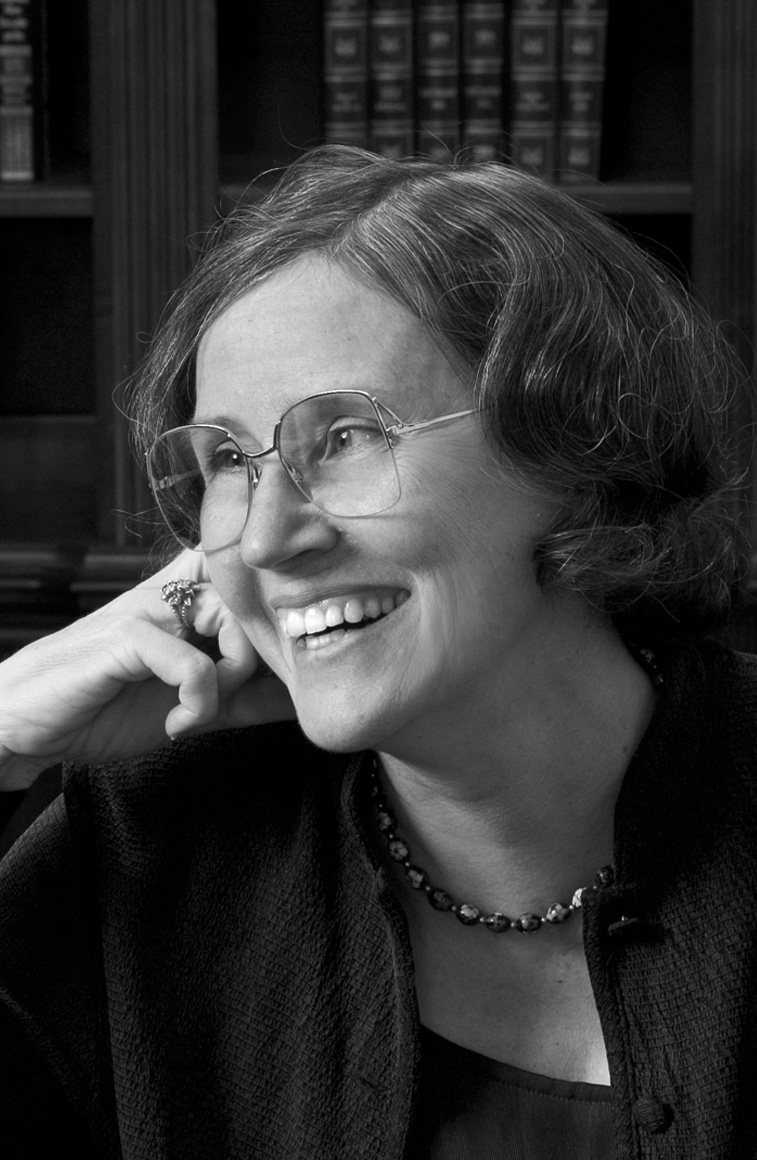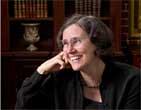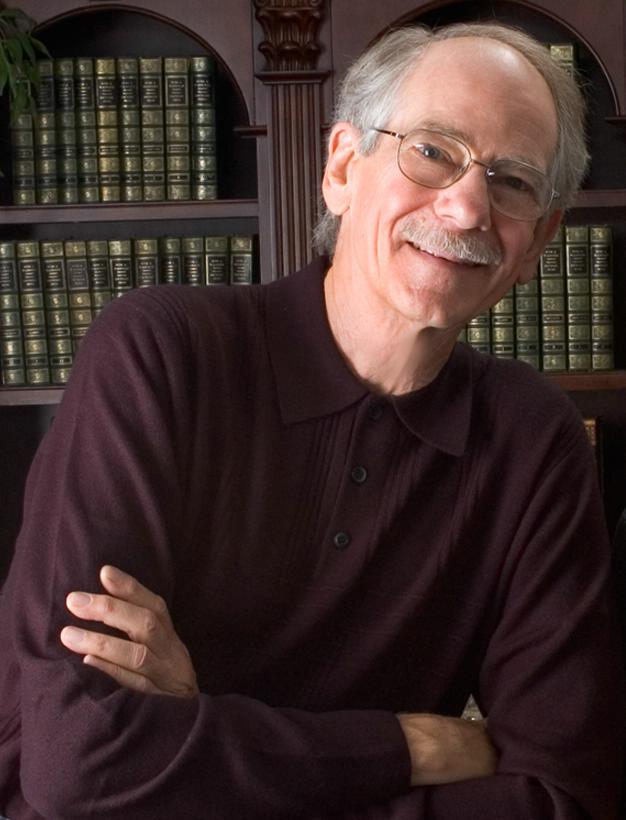The Brights' Net Media Kit
Information on the Organization
- Overview
- The Movement
- The Constituency
- Types of Brights
- Early History
- Archive of Bulletins to Brights
- Legal Status
- Contact Information
- Best Known Constituents
- Richard Dawkins
- Daniel Dennett
- Additional Articles
- Co-Founders
- Paul Geisert
- Mynga Futrell
Information on the Organization
Overview
The Brights’ Net is an international internet civic justice association comprised of registered individuals, all of whom have a naturalistic worldview.
A person's worldview, if naturalistic, contains no supernatural or mystical elements.
The noun form of bright (that is, a bright; the brights) is a neologism, referring to any people whose worldview is free of those elements.
The Brights’ Net organization functions as a constituency and in a non-ideological grassroots fashion. Its website serves as a hub for constituents to communicate with one another and, if they wish, to engage in their varied ways, individually and collectively, in a movement to improve the general social and civic situation of persons whose worldviews are naturalistic.
The Movement
Brights advocate a society of acceptance and equitable civic participation. Whether people do or do not embrace supernatural elements as part of their understanding of reality should not affect their civic standing and political rights in any society. And yet it does.
Currently the naturalistic worldview is insufficiently expressed within most cultures, even politically/socially repressed. In some places, for example, people are shunned, scorned, or even endangered for revealing that they do not believe in supernatural beings.
To be a Bright is to participate in an endeavor to address that unjust situation. Brights work for no more and no less than a level social and civic playing field for all citizens, whether their overall understanding be supernatural (typically, but not necessarily, drawing upon religion) or naturalistic.
The movement’s three major aims are to:
- promote the civic understanding and acknowledgment of the naturalistic worldview, which is free of supernatural and mystical elements,
- gain public recognition that persons who hold such a worldview can bring principled actions to bear on matters of civic importance, and
- educate society toward accepting the full and equitable civic participation of all such individuals.
The Constituency
A person becomes a Bright (upper case) by registering at the website into the constituency of over 45,000 individuals ( in 184 nations), all of whom acknowledge that their ethics and actions are grounded in an altogether naturalistic worldview. People sign up because they recognize the need for change and support the overall aims.
The organization is unique in that it is not the typical “membership” organization. It is a constituency of individuals who broadly share the social and educational goals of the movement.
The Brights’ Net organization does not speak for the constituency as a whole. Each constituent has his/her own beliefs and concerns on any given matter. When an issue arises which demands that The Brights’ Net weigh in, it polls the constituency. Hence any statement from The Brights’ Net takes the form: X number of Brights state Y on issue Z.
Any individual, group, or even the Brights’ Co-Directors can issue a pronouncement of the form: "As a Bright, I state Y on issue Z" or "As Brights, the undersigned state Y on issue Z." That is, Brights avoid stating positions as Brights except as they do so specifically for themselves.
For the Brights’ central policy as regards statements and publications, see http://www.the-brights.net/action/activities/individual/writing/
Types of Brights
The constituency of Brights is hugely diverse. Besides those who self-identify as atheists, ethical culturalists, humanists, secular humanists, freethinkers, rationalists, naturalists, agnostics, skeptics, etc., the network includes Buddhists, Druids, Pantheists, Deists, Objectivists, Transhumanists, Unitarians, Wiccans, Yogis, and a gamut of folks (Jews, Catholics, Quakers, Episcopalians, Unitarians, Muslim, Hindu, Jains) who maintain their religion’s cultural aspects but not its supernaturalism. Sometimes signup comments reveal fairly snug religious connections! Among the Brights there are ex-Mormons and ex-Pentecostals (and other sorts of “ex-es”). Clergy in and out of practice include several UU ministers, Presbyterian ministers, a Protestant (unspecified) pastor, a Church History Professor/ordained priest, an ex-Benedictine monk/priest, an ex-Lutheran minister, ex-Catholic priest, and an ex-Baptist minister.
Early History
- 2002 (Summer) American Atheists, announces a forthcoming event, “The Godless Americans March on Washington”
Excerpts of the AA announcement:
"We are reaching out to all and everyone in America who has no religious beliefs -- Atheists, Freethinkers, Secular Humanists, Rationalists. Whatever the label, we're asking you to come to Washington , DC and be part of this important event...
We are calling this 'The Godless Americans March on Washington.' Like every other group that has fought its way from the margins of society into the mainstream, we have demands...
We represent a diverse community. We use different labels in describing ourselves and we are far from a monolithic movement. But we do share common interests and agreement on key issues. The political state of the nation -- the rush to use government money to fund faith-based social outreaches; the use by politicians of religion as a litmus test for wholesomeness, patriotism and courting voters; the bigotry displayed against those of us who profess no religion in wake of the 9/11 terrorist attacks -- these issues, and more, demand of us that we come together in common purpose...
We have concerns and demands."Aims (civil rights, church-state separation; a greater voice in the national political process) are summarized at: http://en.wikipedia.org/wiki/Godless_Americans_March_on_Washington
While agreeing with the overall conception (a first national coalition to publicly meet together), the choice of the name “Godless” for the march distresses Paul Geisert, current Brights' Net Co-Director, and he searches feverishly for an alternative name to use in unifying such a gamut of individuals. Within six months, a somewhat different movement is in progress under another label which he has coined.
- November 4, 2002 Geisert and Futrell attend the “Godless March on Washington” and mention to a few individuals in attendance that an alternative word has been coined and will shortly be revealed.
- December, 2003 Futrell develops a definition statement that will likely embrace diverse individuals and focus attention on a worldview broadly shared by individuals in attendance at GAMOW; both Futrell and Geisert develop the conception of a movement (aims and principles) and prepare a PowerPoint presentation to argue for a new civic identity before likely audiences.
- April, 2003 The word and concept is presented at the Atheist Alliance International's annual convention in Tampa, Florida, and immediately three other presenters on the program, Richard Dawkins, James (The Amazing) Randi, and Michael Shermer register (on paper) as Brights, as well as many of the audience in attendance.
- June 4, 2003 The Brights’ Net website goes live (developed by Geisert and Futrell with webmaster Kevin Schultz).
- June 21, 2003 Richard Dawkins writes an article in the London Guardian and overnight the newly coined term gains international awareness and the website is modified accordingly. Adjustments are made to accommodate interests of international registrants.
- June 27, 2003 James Randi writes in SWIFT, his online newsletter “I want to begin this week's page with an important announcement that belongs up front here, not tagged onto the tail end of the update. It involves the advent of a new noun, "bright."
- July 12, 2003 Daniel Dennett's"The Bright Stuff" appears in The New York Times. He states:
"You may well be a bright. If not, you certainly deal with brights daily. That's because we are all around you: we're doctors, nurses, police officers, schoolteachers, crossing guards and men and women serving in the military. We are your sons and daughters, your brothers and sisters. Our colleges and universities teem with brights. Among scientists, we are a commanding majority. Wanting to preserve and transmit a great culture, we even teach Sunday school and Hebrew classes. Many of the nation's clergy members are closet brights, I suspect. We are, in fact, the moral backbone of the nation: brights take their civic duties seriously precisely because they don't trust God to save humanity from its follies.”
Giant controversy rages on the Internet over the word, which gives the movement a dramatic start and free publicity lasting several months. Here are some examples.
- July 12, 2003 The Skeptics Dictionary states:
"A Bright is a person whose worldview is naturalistic, that is, free of supernatural or mystical elements. The term was coined by Mynga Futrell and Paul Geisert, a pair of Brights from Sacramento, California, who thought it would be sensible to adopt a common name for atheists, agnostics, freethinkers, materialists, naturalists, rationalists, secularist humanists, and skeptics." - September 2003 Bright is MacMillan English Dictionary's "Word of the Week":
“The term Bright was coined earlier this year by Paul Geisert and his wife Mynga Futrell, both freelance writers in Sacramento, California. Frustrated with the rather negative overtones often associated with words that describe people who don’t subscribe to religious beliefs, Geisert and Futrell sought to introduce a new way of referring to individuals whose world view is entirely naturalistic. The new noun Bright is intended to be used as a generic reference to all such individuals, functioning as a so-called umbrella term for atheists, agnostics, naturalists and rationalists, among others. It is therefore possible to describe yourself as an atheist and also say that you are a Bright, meaning that you are part of the larger Brights movement.” - October 19, 2003 American Humanist Association initiates BrightRights.org:
As the coiners of bright were first to announce, nobody owns rights to the term and all are encouraged to promote the positive idea of brights. The AHA's mission is to promote Humanism, a progressive philosophy of life that, without supernaturalism, affirms our ability and responsibility to lead ethical lives of personal fulfillment that aspire to the greater good of humanity. Since, by definition, Humanists are a type of bright, it follows that an initiative in support of the bright movement such as the BrightRights Project, will also support AHA's mission. - October, 2003 Wired Magazine: Richard Dawkins in "Religion Be Damned":
"The gay meme improved the image and, I dare add, the happiness of a once unpopular minority. Similarly, bright is intended to come to the aid of another beleaguered community in the US: those who, in the most religiose country in the Western world, have no religion, who are variously labeled atheists, agnostics, freethinkers, philosophical naturalists, secularists, or humanists. A Gallup poll in 1999 asked American voters the following question: "If your party nominated a generally well-qualified person for president who happened to be an X would you vote for that person?" X took on the following values: Catholic, Jew, Baptist, Mormon, black, homosexual, woman, atheist. Six out of the eight categories secured better than 90 percent approval. But only 59 percent would vote for a homosexual, and just 49 percent would vote for an atheist. Bear in mind that there are 29 million Americans who describe themselves as nonreligious, secular, atheist, or agnostic, outnumbering Jews tenfold and all other religions except Christianity by an even larger margin." - October 19, 2003 Michael Shermer writes and article in Skeptic.com he called "The Big 'Bright' Brouhaha"
http://goliath.ecnext.com/coms2/gi_0199-614328/The-big-bright-brouhaha-an.html - November, 2003 The Atlantic: Cullen Murphy: The Path of Brighteousness
Spurred by the interest and activity, a cadre of volunteers formalizes the endeavor, chartering a nonprofit educational organization in California and establishing a communications hub for subsequent activities.
- November 7, 2003 The Brights' Net receives notice from the Internal Revenue Service of its 501(c)(3) status as a non-profit corporation .
- December 2003 The Bright’s Net’s Forum, first product of a volunteer effort by Brights, goes live.
Archive of Bulletins to Brights
A complete archive of Bulletins sent to the Brights is available from March 1, 2003 through the current issue: http://www.the-brights.net/movement/bulletin/archive.html
Legal Status
The Brights’ Net is a 501(c)(3) nonprofit educational corporation based in Sacramento, California, USA. Additional information is available at GuideStar (http://www.guidestar.org)
Contact Information
The Brights’ Net
P.O. Box 163418 Fort Sutter Station
Sacramento, California 95816
Email the-brights@the-brights.net
Best Known Brights
The Brights’ Net received international media coverage after essays by Richard Dawkins in the London Guardian and Daniel Dennett in the New York Times in 2003. A controversy of the invented noun Bright that raged on the Internet, as well as the written contributions of these two individuals, contributed most to an early a spurt of growth internationally and in the United States.
Richard Dawkins

Formerly the Charles Simonyi Professor of the Public Understanding of Science at Oxford University, Dawkins is known both for his several books (among them The Selfish Gene, Climbing Mount Improbable, Unweaving the Rainbow, The Ancestor's Tale and The God Delusion) and for his strident form of atheism. His Guardian article about the Brights (at: "The Future Looks Bright" ) drew attention to the civic justice endeavor but simultaneously conflicted in several ways with the intentions of the founders. Dawkins' interpretation of the term "bright" (as a simple euphamistic substitution for "atheist"), combined with his international influence, created a situation that overrode the initial conception of the term as a unifying term that would enable people of varied philosophies going by different sorts of labels to unite in a civic endeavor.
Daniel Dennett
 He is the author of Freedom Evolves, Darwin's Dangerous Idea, and Breaking the Spell, as well as Austin B. Fletcher Professor of Philosophy and Director of the Center for Cognitive Studies at Tufts University. Read his New York Times article " The Bright Stuff."
He is the author of Freedom Evolves, Darwin's Dangerous Idea, and Breaking the Spell, as well as Austin B. Fletcher Professor of Philosophy and Director of the Center for Cognitive Studies at Tufts University. Read his New York Times article " The Bright Stuff."
Various articles related to The Brights' Net
Who Are the Brights? by Mynga Futrell and Paul Geisert The Brights’ Net Co-Directors
The Civic Value of an Umbrella by Mynga Futrell and Paul Geisert The Brights’ Net Co-Directors
Nixing "Nonbelief"—The Brights by Mynga Futrell and Paul Geisert The Brights’ Net Co-Directors
Let There Be Brights by Richard Dawkins in Wired Magazine
A Look On the Bright Side Of Social and Religious Issues by Marilyn LaCourt as featured in CNI's "At Ease"
A Brights Idea by Sharon Tubbs in St. Petersburg (FL) Times
The future is oh-so non-adjectivally bright by Ruth Wajnryb in The Sydney Morning Herald
Worldview: Nonbelievers Unite by Erik Strand in Psychology Toda
Paul Geisert, Co-Founder
 A biology teacher in Chicago in the 60s, a professor of biology and science education in the 70s, an entrepreneur and writer in the 80s, and a co-developer of learning materials and websites in the 90s. As a professional instructional developer, he co-authored The Well Trained Computer and Teachers, Computers, Curriculum: Using Microcomputers in the Classroom. To visit a project about freethinkers he developed for social studies teachers, go to: www.teachingaboutfreethought.org. Among abiding concerns about the low status of contemporary freethinkers in American society, Geisert attributed the abundance of negative and religion-grounded terminology for contributing to the social factors underlying disenfranchisement of many citizens. This led to his creating the noun, bright, as a potential civic- (rather than religion-) focused self-identity term.
A biology teacher in Chicago in the 60s, a professor of biology and science education in the 70s, an entrepreneur and writer in the 80s, and a co-developer of learning materials and websites in the 90s. As a professional instructional developer, he co-authored The Well Trained Computer and Teachers, Computers, Curriculum: Using Microcomputers in the Classroom. To visit a project about freethinkers he developed for social studies teachers, go to: www.teachingaboutfreethought.org. Among abiding concerns about the low status of contemporary freethinkers in American society, Geisert attributed the abundance of negative and religion-grounded terminology for contributing to the social factors underlying disenfranchisement of many citizens. This led to his creating the noun, bright, as a potential civic- (rather than religion-) focused self-identity term.
Mynga Futrell, Co-Founder
 Mynga has been an educator at all levels of instruction, from an elementary open school through university professor, including at Gallaudet University (for the Deaf), Washington, DC. She created the definition for the noun, bright. Mynga is a civic pluralism/civic justice advocate. She has served on the national advisory council of Americans United for the Separation of Church and State and the national boards of the American Humanist Association and the Atheist Alliance. She presently serves on the 3Rs (rights, respect, responsibility) religious liberty project for California teachers initiated by the First Amendment Center and is lead developer on a religion-neutral professional web resource for educators ("Teaching about Religion in Support of Civic Pluralism). You can visit the site at: http://worldvieweducation.org
Mynga has been an educator at all levels of instruction, from an elementary open school through university professor, including at Gallaudet University (for the Deaf), Washington, DC. She created the definition for the noun, bright. Mynga is a civic pluralism/civic justice advocate. She has served on the national advisory council of Americans United for the Separation of Church and State and the national boards of the American Humanist Association and the Atheist Alliance. She presently serves on the 3Rs (rights, respect, responsibility) religious liberty project for California teachers initiated by the First Amendment Center and is lead developer on a religion-neutral professional web resource for educators ("Teaching about Religion in Support of Civic Pluralism). You can visit the site at: http://worldvieweducation.org



